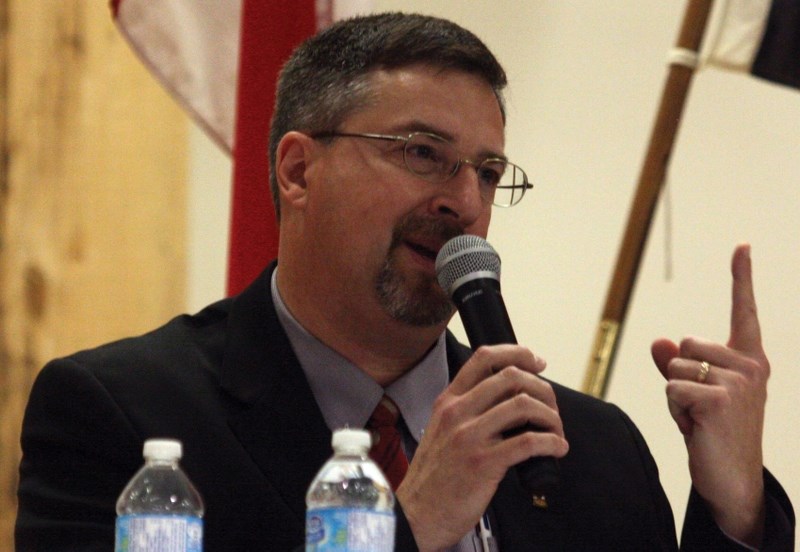While the majority of the Alberta is busy analyzing and arguing over the provincial budget, health care activists across the province have been celebrating a major victory after Alberta Health Services made a “game changing” announcement earlier in the month.
Several years on from its decision to gradually centralize core services to big city hubs in Edmonton and Calgary, AHS finally admitted defeat on March 18, declaring it would be moving away from centralization in favour of implementing a brand new district system.
Making the announcement at the Alberta Association of Municipal Districts and Counties (AAMDC) convention in Edmonton, provincial health minister Stephen Mandel said the government would be recommending the province transition into between eight and ten operational districts so as to “give communities a stronger voice in local decision making.”
“We hope that this will push decision making down to the local level, which is what the goal is, and will allow each of the particular districts and each of their facilities to deal with budgetary constraints,” Mandel said.
The new districts will be established and released to the public by July 1.
Having spent the best part of his first six months as mayor of Bonnyville fending off centralization in order to keep core health services in town, Gene Sobolewski was understandably pleased to hear the province would be doing away with a system he believes is “not effective.”
“It's probably around four months ago now that I made a comment to AHS saying they needed to start listening to Albertans,” Sobolewski said. “Overall, I think the move to regional boards and centres is a positive move on the face of it, however the devil is going to be in the details.”
The devil Sobolewski is referring to is a problem all major figureheads in the Lakeland believe needs eradicating before real ground can be made with the provincial health care system.
“The bureaucracy that is currently rampant in AHS needs to be eliminated before we can say this is good for local health care,” Cold Lake Mayor Craig Copeland told the Nouvelle last week. “There are layers upon layers of bureaucracy involved at AHS and they all need to be removed so that hospital managers and chiefs of staff have more of an ability to make decisions within their local hub.”
He added, “Then we're going to have to see what the district itself looks like. I'd like to see the Bonnyville – Cold Lake area grouped in alongside St. Paul, Lac La Biche and Elk Point. I don't think it would be a good move if we were in a giant northern region alongside Fort McMurray, so it's really hard to say right now whether or not this move is a positive or a negative.”
“I guess we'll just have to wait and see what the regions look like.”
Bonnyville – Cold Lake MLA Genia Leskiw believes AHS has taken a giant step in the right direction by pushing decision making back down to the local level.
“I think this move will greatly benefit this area. Basically, through these operational districts, it will remove issues local management has faced regarding going through two levels of bureaucracy just to get something as simple as changing a lightbulb done,” Leskiw said.
She added, “Minister Mandel has done a great job with this report and there are a lot of things coming out that is going to help the provincial health system. The changes being made to the rural ambulance service is an excellent idea. Overall, I'm happy to see the minister taking the words of Albertans into consideration and acting swiftly and appropriately in making these changes.” EMS Service Delivery
The report also recommended several changes be made to provincial EMS service delivery, including mandating that rural ambulances return to their home territory within one hour of taking a patient to a major urban centre for treatment, something Leskiw believes is a “huge positive.”
“The changes that are going to be made to the rural ambulance service is an excellent idea and will really be felt right here in Bonnyville and Cold Lake,” Leskiw said. “Now our ambulances won't be stuck in Edmonton for hours on end. They can get back up here as soon as possible to help those in the region that need it. That can only be a good thing.”



